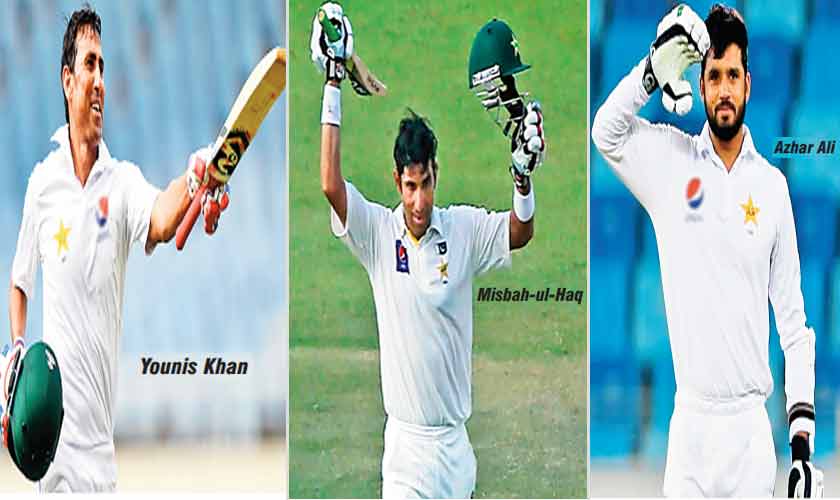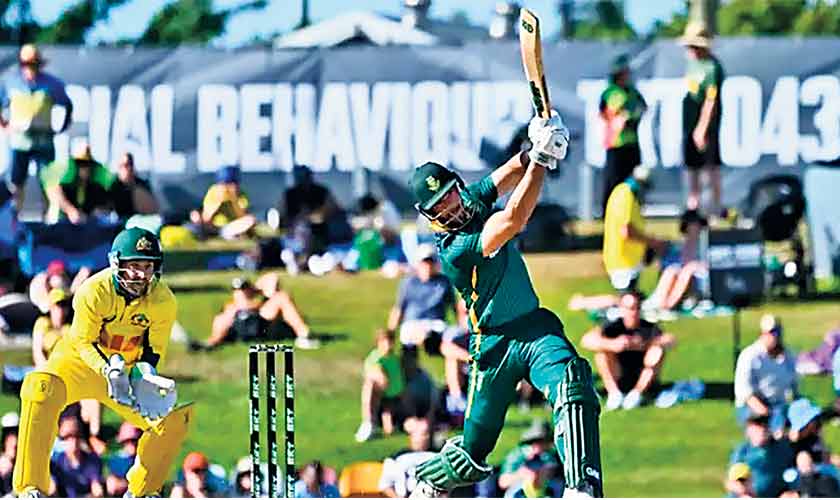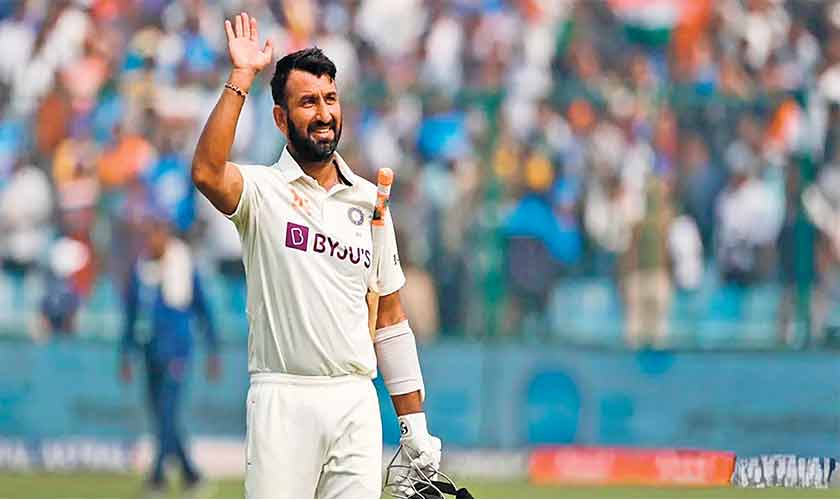It’s 9.30 am, March 3, 2009. In Lahore, a Test match between Pakistan and Sri Lanka is underway at the Gaddafi Stadium. A team bus carrying the Sri Lankan side winds its way on a seven-kilometer journey from the hotel where the team is staying to the stadium. It is followed by a minivan carrying umpires and other match officials. Less than a kilometer from the ground, near the city’s famous Liberty Square, the vehicles come under fire from terrorists armed with automatic guns, grenades and rockets. In the ensuing exchange of fire, eight people lose their lives and six are injured. Quick thinking and courage on the part of the bus driver, who continues to drive the bus on its flat tyres all the way to the stadium, prevents an even bigger tragedy. The driver of the minivan is killed and a police officer jumps in to drive the vehicle to safety.
This incident sent shockwaves through the cricketing world. Teams refused to tour Pakistan, which, therefore, lost its status of an international Test venue. For ten long years there were no Test matches in Pakistan and the team adopted the UAE as its home for Test cricket. This nomadic decade constitutes the wilderness years of our cricketing history.
During its years away from home turf the Pakistan team played 88 Tests, winning 33 and losing 41, while 14 Tests were drawn. In the same period Pakistan participated in 232 ODIs of which they won 109 and lost 116. Five ended in ‘no result’ and 2 were tied. As for T20Is, Pakistan played 127, they triumphed in 79 and lost 48.
The numbers indicate a mixed bag and the figures do not lie. It was a turbulent ride, perhaps even convulsive at times. While home audiences were denied the opportunity to watch their national stars in action, the UAE did provide a happy alternative home base, with a large expatriate population of the Pakistanis, to provide the feel of a supportive home crowd.
Despite the difficulties it faced due to lack of international cricket at home, the Pakistan team produced some memorable performances during this decade.
1. ICC T20 World Cup victory (2009)
This was arguably the most significant achievement of the wilderness decade. Just two years after losing the inaugural T20 World Cup final to India, Pakistan, led by Younis Khan, went on to win the 2009 edition. The tournament saw Shahid Afridi at his exhilarating best. In the semi-final against Australia a rapid half-century and a remarkable spell of 2 for 16 were crucial to Pakistan’s victory. In the final versus Sri Lanka, Afridi scored another fifty in his trademark explosive style and took a wicket as well to lead Pakistan to an eight-wicket win at Lord’s. He was aptly named the Man of the Match in both these games.
2. ICC Champions Trophy victory (2017)
This has been considered as one of the most remarkable and unexpected triumphs in the history of the tournament. Pakistan entered the 2017 Champions Trophy in England as the lowest-ranked team in the competition. After a crushing defeat to India in their first match, Pakistan bounced back to defeat top-ranked South Africa and Sri Lanka to qualify for the semi-finals. In the semi-final Pakistan outclassed a strong England team by eight wickets to reach the final.
In a historic final against overwhelming favourites India, Pakistan’s performance was another example of its unpredictable brilliance. Fakhar Zaman, playing just his fourth international innings, hit an audacious maiden ODI century. Mohammad Amir, with a devastating opening spell, dismantled India’s top order. Pakistan romped to a massive 180-run victory, their first Champions Trophy title and their first win in a global ICC one-day competition since the 1992 World Cup.
3. Test series win against England (2012)
Against conventional wisdom and in defiance of the ICC ranking system, Pakistan whitewashed England, the top ranked Test team of the time, 3-0 in a three match series in the UAE. Pakistan’s Saeed Ajmal and Abdur Rehman ran riot, claiming 43 wickets between them at a cost of 15.60 runs each. During the third Test Pakistan became the sixth side in Test history, and the first one since 1907, to win a Test after being dismissed for under 100 in the first innings.
4. Test series win against Australia (2014)
This was a dominant performance against a strong Australian side. Pakistan won this two-match series 2-0 in the UAE on the back of some truly amazing individual batting performances. They won with almost embarrassing ease, outplaying Australia like few sides have ever done. Pakistan’s collective batting average in the series was an astonishing 80.15 and when compared to Australia’s 25.65 it provided the biggest all-time gap in an Australian series defeat. The series was memorable for Younis Khan’s incredible form, where he scored a century in three of his four innings — including a century in each innings in the first Test and a double-hundred in the second. The captain Misbah-ul-Haq and Azhar Ali both scored a century in each innings in the second Test. Misbah also equaled the record for the fastest ever Test century in the second Test, reaching the three-figure mark in just 56 balls, toying with a much-venerated Australian attack in the process.
5. Test series win in Sri Lanka (2015)
This was a classic comeback series win that showcased the team’s fighting spirit. After losing the first Test, Pakistan rallied to win the second and third matches to claim the series 2-1. The final match, in Pallekele, witnessed a thrilling finale, with Younis Khan scoring a magnificent 171 not out to lead Pakistan to victory in a record-breaking chase of 377 runs. This away series victory against a subcontinental rival was a crucial part of Pakistan’s journey to the No. 1 ranking in Test cricket.
Interestingly, in its entire Test cricketing journey so far Pakistan has successfully chased a target of over 300 on only three occasions and Sri Lanka have been the opponents each time. Two of these chases were in the wilderness years, once in Pallekele as described above and the other in Sharjah in 2014, when aided by a century from Azhar Ali, Pakistan scored 302 for 5 to get to the winning post.
6. Test series win against England (2015)
In this UAE based series, Pakistan were keen to repeat their 2012 performance of a 3-0 win against England. They came close, winning the series 2-0 to maintain their unbeaten series record in the UAE and rising to No. 2 position in the world ranking.
7. Historic Test
series draw in
England (2016)
This was Pakistan’s first series in England after their acrimonious tours of 2006 and 2010, and a defining moment for Misbah-ul-Haq’s Test side. The series started with a brilliant victory for Pakistan at the historic Lord’s ground. Misbah’s century in the first innings, followed by his post-celebration push-ups, became an iconic image for the tour. It was perhaps fitting that the final English wicket in this Test was taken by Mohammad Amir, who six years ago was one of the accused in the spot-fixing saga that had plunged a whole nation into dismay. Despite losing the next two matches, Pakistan’s resilience saw them bounce back to win the final Test at The Oval, securing a 2-2 draw in the four-match series.
8. Attaining the No. 1 Test ranking (2016)
In August 2016, for the first time since the ICC Test rankings were introduced in 2003, Pakistan ascended to the top spot. This was particularly remarkable because they achieved it while playing all their “home” series in the United Arab Emirates (UAE). They were constantly touring, away from their home country, family and friends for large parts of the year. Their ability to consistently perform in neutral and overseas venues against top teams was a testament to their skill and mental fortitude. For a side that had not played a single Test on home ground for over seven years to attain this top ranking established a new and unique record, and one that is never likely to be equaled.
9. Charting new
territory versus the West Indies
It was during the wilderness years that Pakistan played their first day-night or pink ball Test. The occasion was the first Test of a three match series against the West Indies in the UAE in 2016. This was also Pakistan’s 400th Test and Azhar Ali celebrated the occasion with an unbeaten triple century, becoming the fourth Pakistani batsman to reach this landmark. Pakistan won the series 2-1.
The following year, in what would be the farewell series for both Misbah ul Haq and Younis Khan, Pakistan finally managed to beat the West Indies in the West Indies. It took them 8 tours and over 59 years to do so. Misbah ended his career with two scores of 99 during the series, including an unbeaten one.
10. More white ball successes
Led by Misbah-ul-Haq, Pakistan clinched the 2012 Asia Cup held in Bangladesh, defeating the host team by just two runs in a thrilling final.
In 2012-13, Misbah also led his side to a 2-1 win in a three ODI series in India.
In 2013 Pakistan, became the first team to win a T20I series against South Africa on their home turf. Later that year Pakistan also became the first Asian team to win an ODI series in South Africa.
11. Two stalwarts of the decade
Misbah ul Haq’s leadership was instrumental in rebuilding the team after the 2010 spot-fixing scandal. His calm demeanor provided much-needed stability to a capricious and often chaotic team environment. Phlegmatic and unruffled, Misbah did not seek the limelight or adulation; he focused on getting the job done. He racked up 26 wins in 56 Tests as captain. In the UAE, Pakistan’s adopted home in the wilderness years, he shepherded the national side through a seven-year unbeaten run. He never lost a ‘home’ series. He was the only captain whose team whitewashed both England and Australia.
Besides his leadership, his batting performances were crucial. His technique was simple and uncomplicated: defend against pace, attack against spin. He could move seamlessly from slow plodding tuk tuk to savage assault. His record-making fastest Test fifty (off 21 balls) and fastest Test century (off 56 balls) were both achieved in the same innings, against Australia in 2014, a classic example of his ability to accelerate effortlessly when needed.
In the wilderness years, he scored 4509 runs at an average of 47.46 runs, forming a formidable middle-order duet with Younis Khan.
Younis was the cornerstone of Pakistan’s Test side during this period. He became the first Pakistani player to score 10,000 Test runs, reaching this milestone on April 23, 2017. Younis also carved a niche for himself as one of the most successful batsmen in the fourth innings of a Test.
His five fourth-innings centuries are a record and his 1465 runs in the fourth innings of Tests at an average of 50.51 make him one of only six batsmen with a 50-plus average and 1,000-plus runs in the fourth innings. During the wilderness years, Younis scored 4970 runs, averaging 52.31 runs.
Interestingly, it was Younis rather than Misbah who had originally been groomed for captaincy. The PCB chairman Shehryar Khan had appointed him as Inzamam’s deputy in 2005. However, when the time came for him to take over in 2006, Younis refused because, as he said in his own words, he “did not want to be a dummy captain”.
He wanted Misbah in his side but the selectors picked Faisal Iqbal. Younis did captain the national side briefly, leading them to a win in the 2009 World T20 Championship, but resigned soon afterwards when a politician accused him of “fixing”. The PCB responded by imposing a life ban on him as a consequence of which he missed the infamous tour of England in 2010. The ban was lifted after ten months when Misbah assumed captaincy of the team.
Misbah and Younis formed a formidable pair that sustained the national team during its darkest hour, lifting it from the abyss to the top of the world’s cricketing pyramid.
12. The beginning
of the PSL
Amid all the turmoil of the wilderness years, the PSL or the Pakistan Super League was launched by the PCB in 2015, with the inaugural season taking place in 2016. Initially contested by five teams the entire inaugural tournament was played in the UAE. The following year the final was held in Pakistan and by 2020 the entire tournament had relocated to major Pakistani cities.
The wilderness years were a trying time for Pakistan cricket. The national team is still recovering from its impact, with a whole generation of emerging talent deprived of the opportunity to compete against visiting international teams.
Dr Salman Faridi is a senior surgeon, poet, sports aficionado and an avid reader with a private collection of over 7000 books.
salmanfaridilnh@hotmail.com






